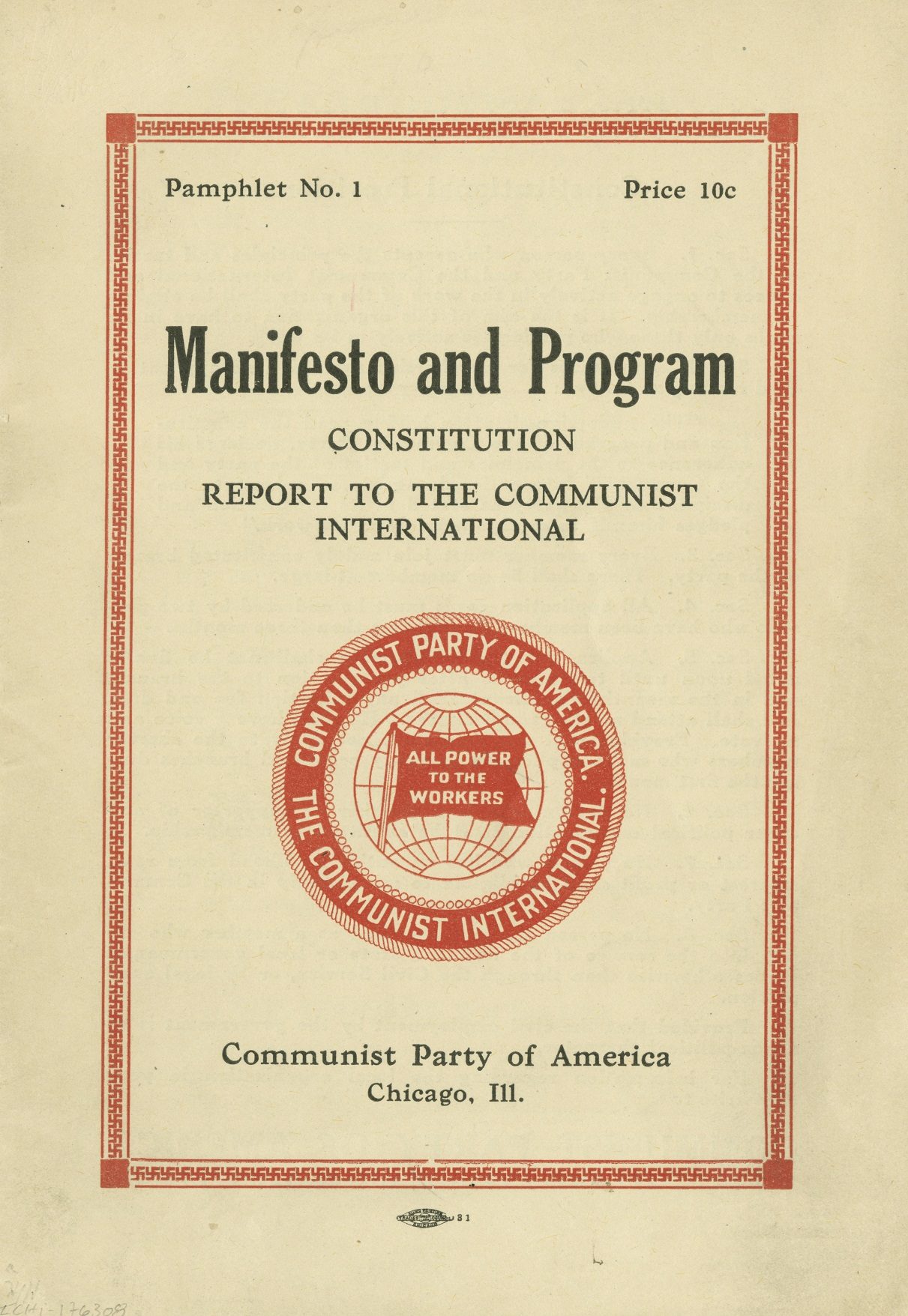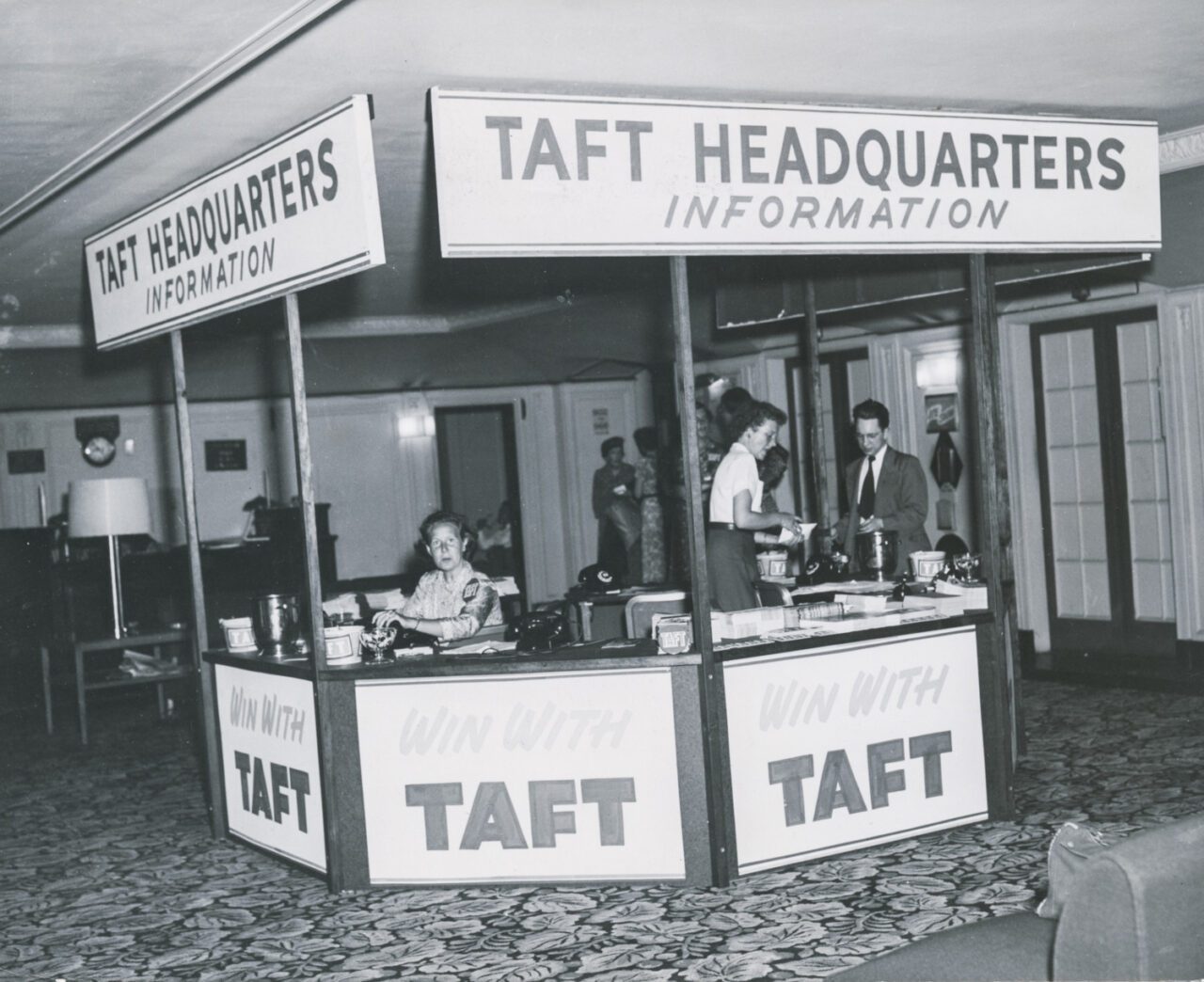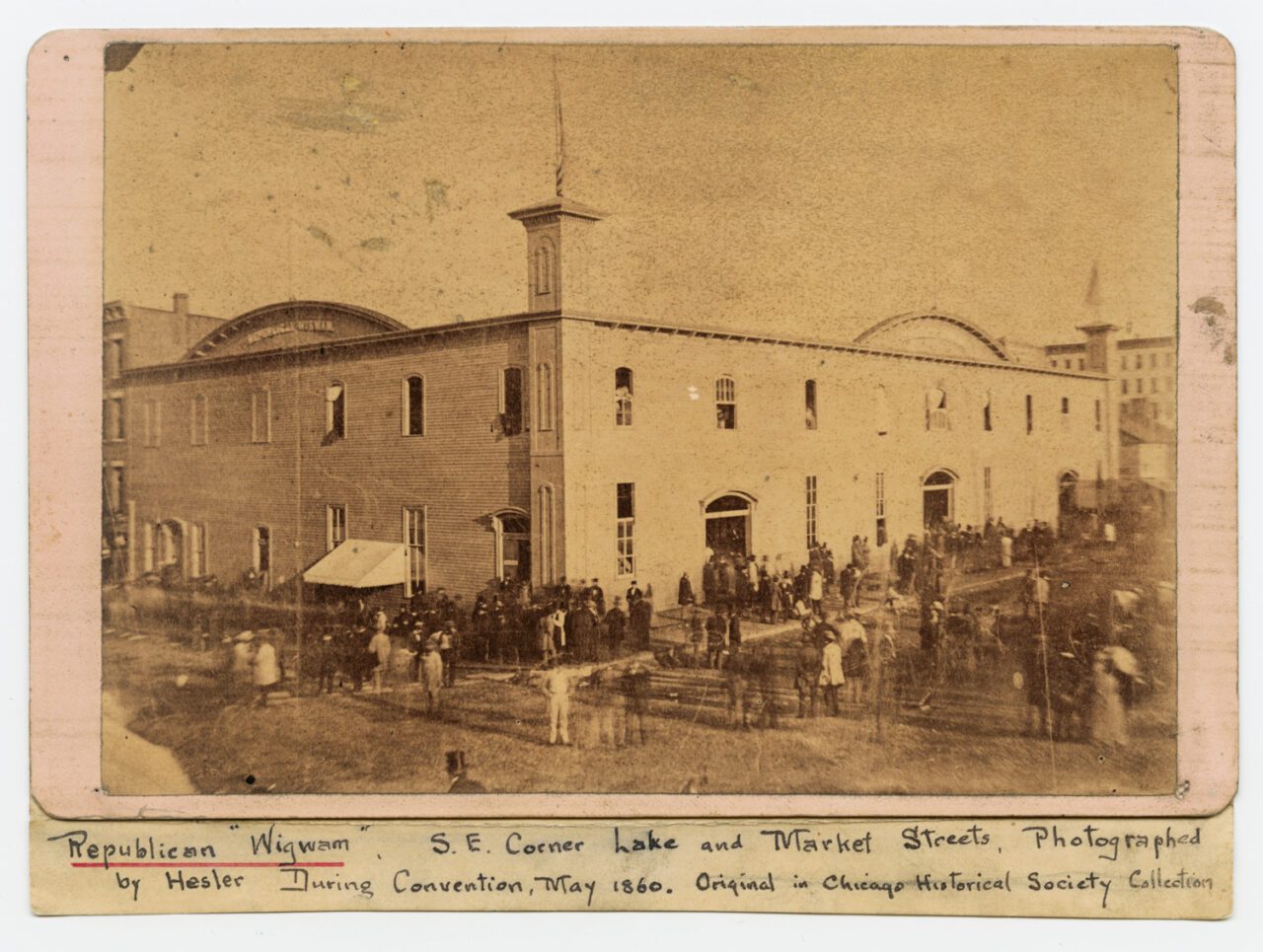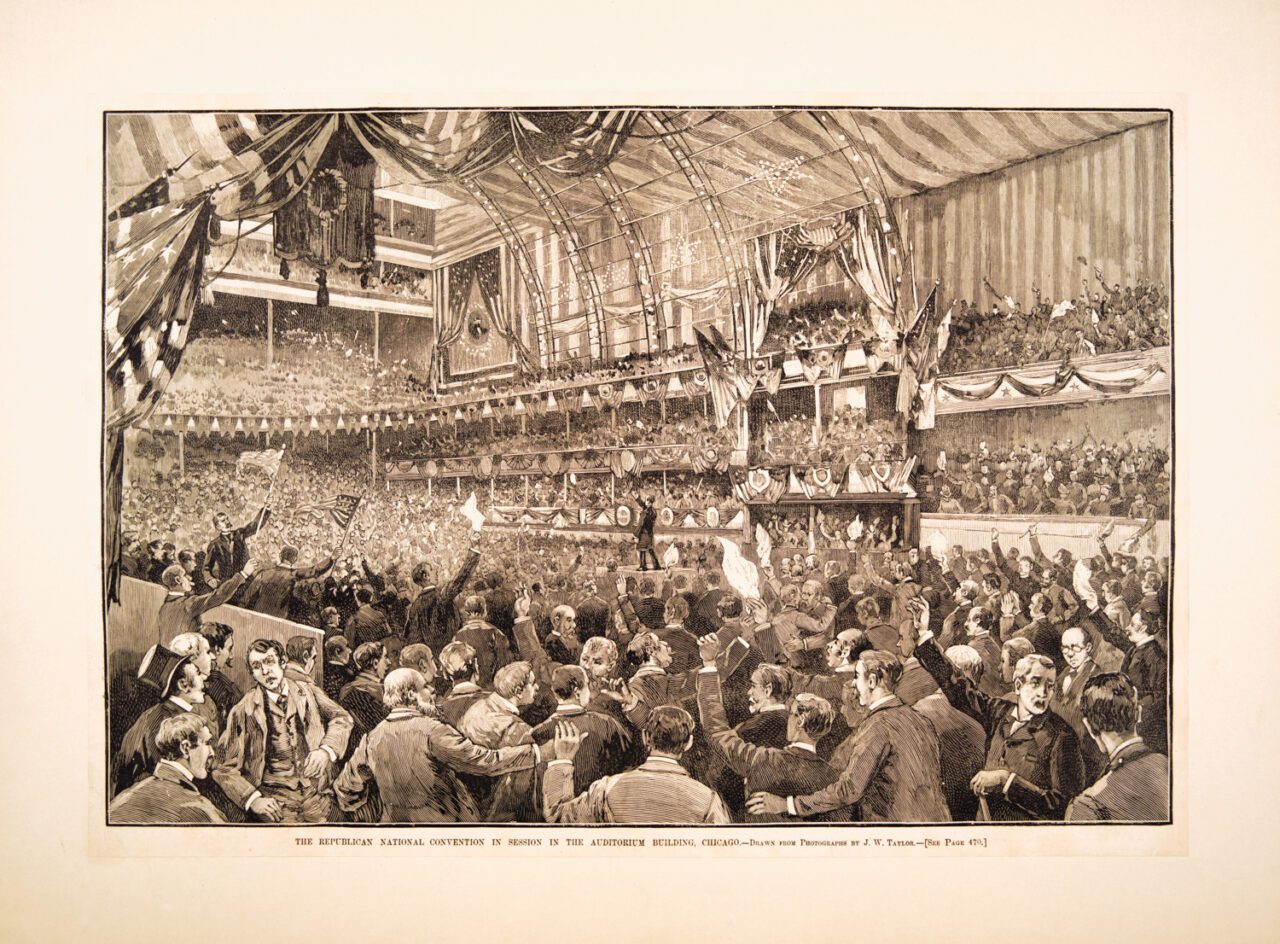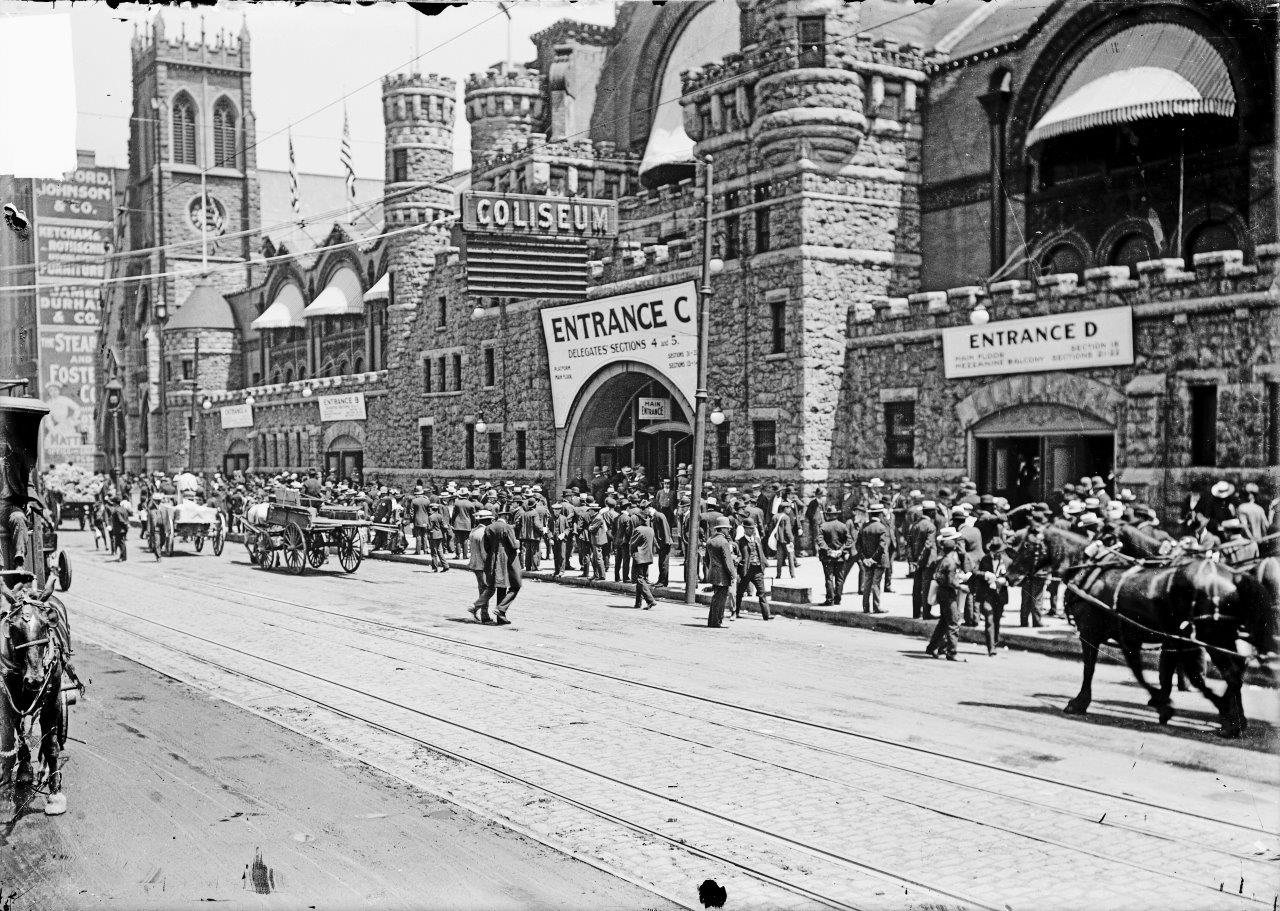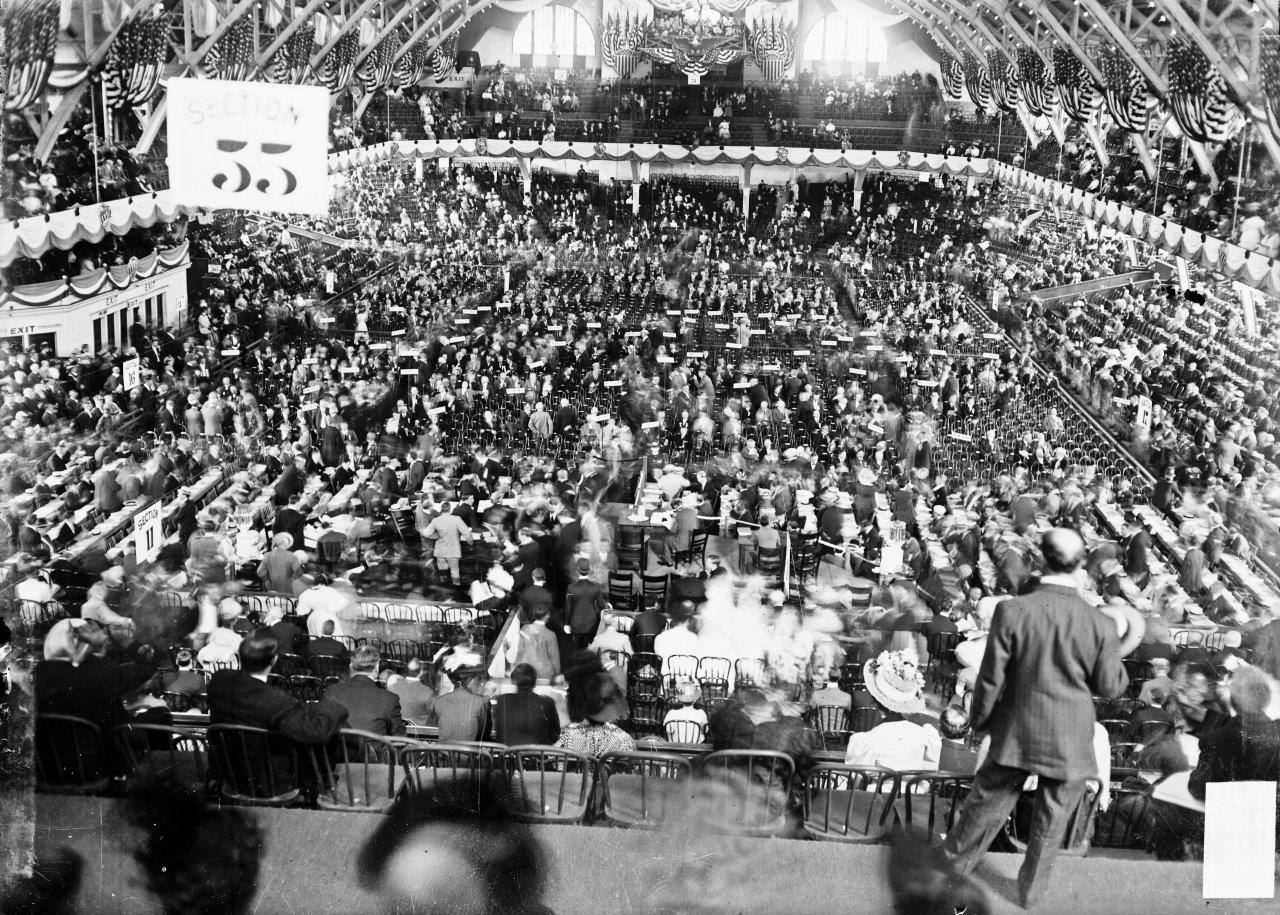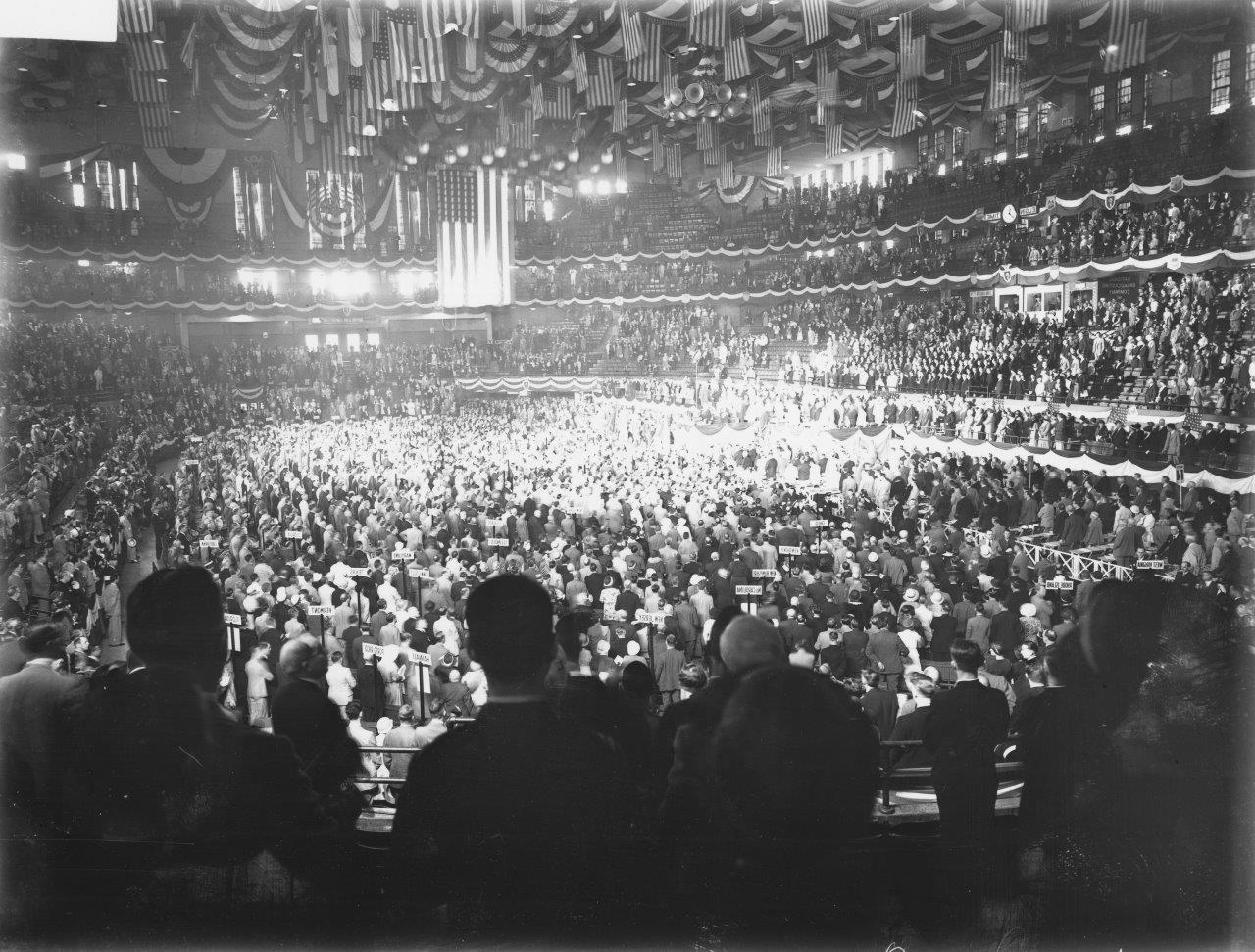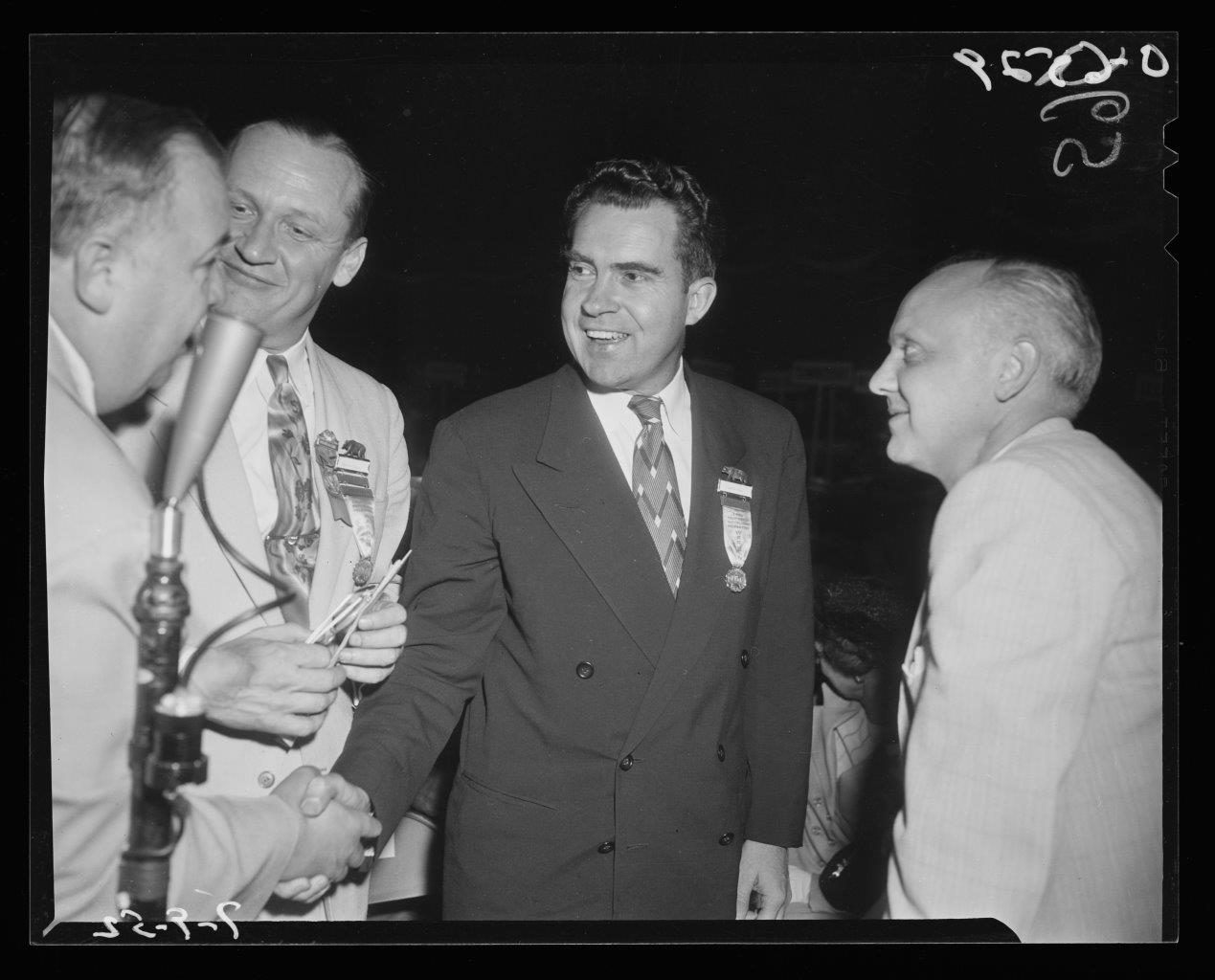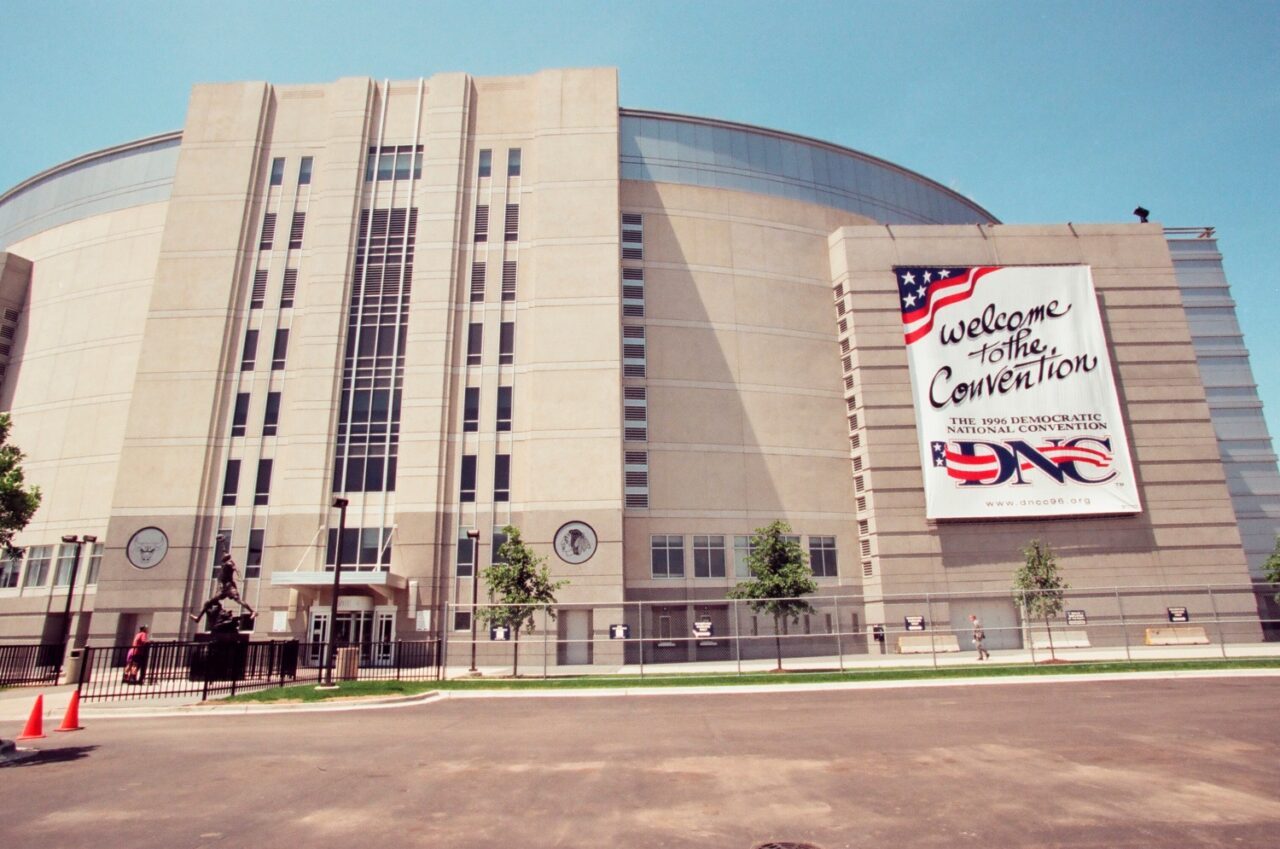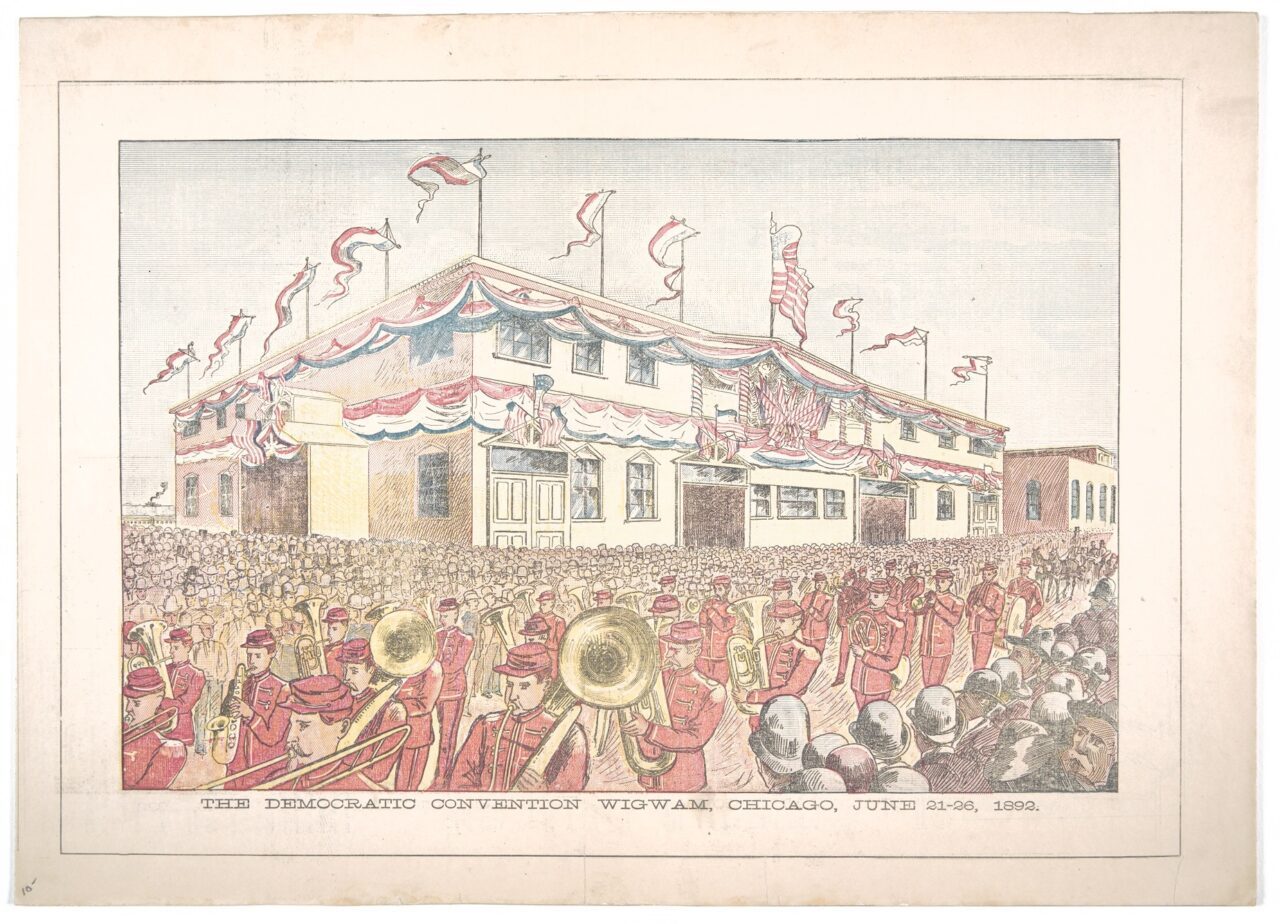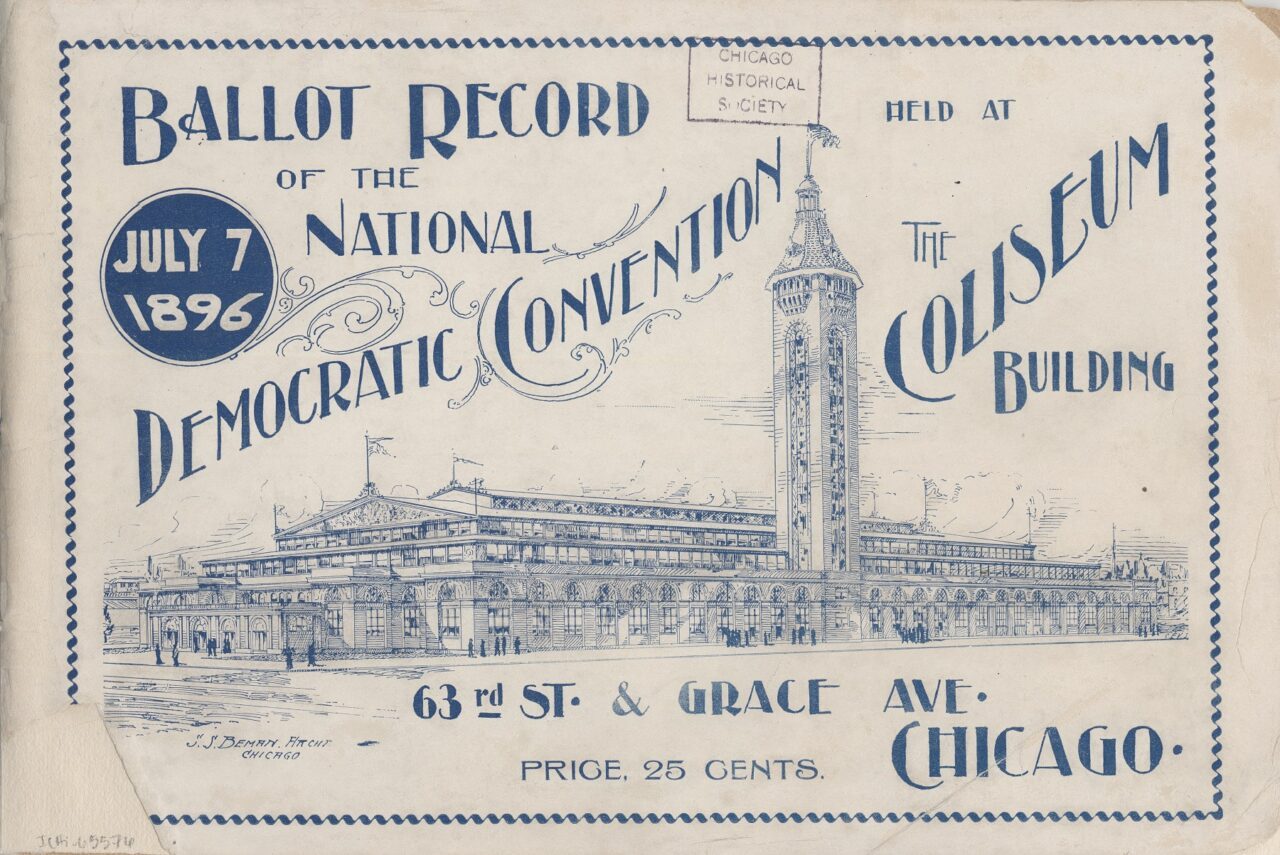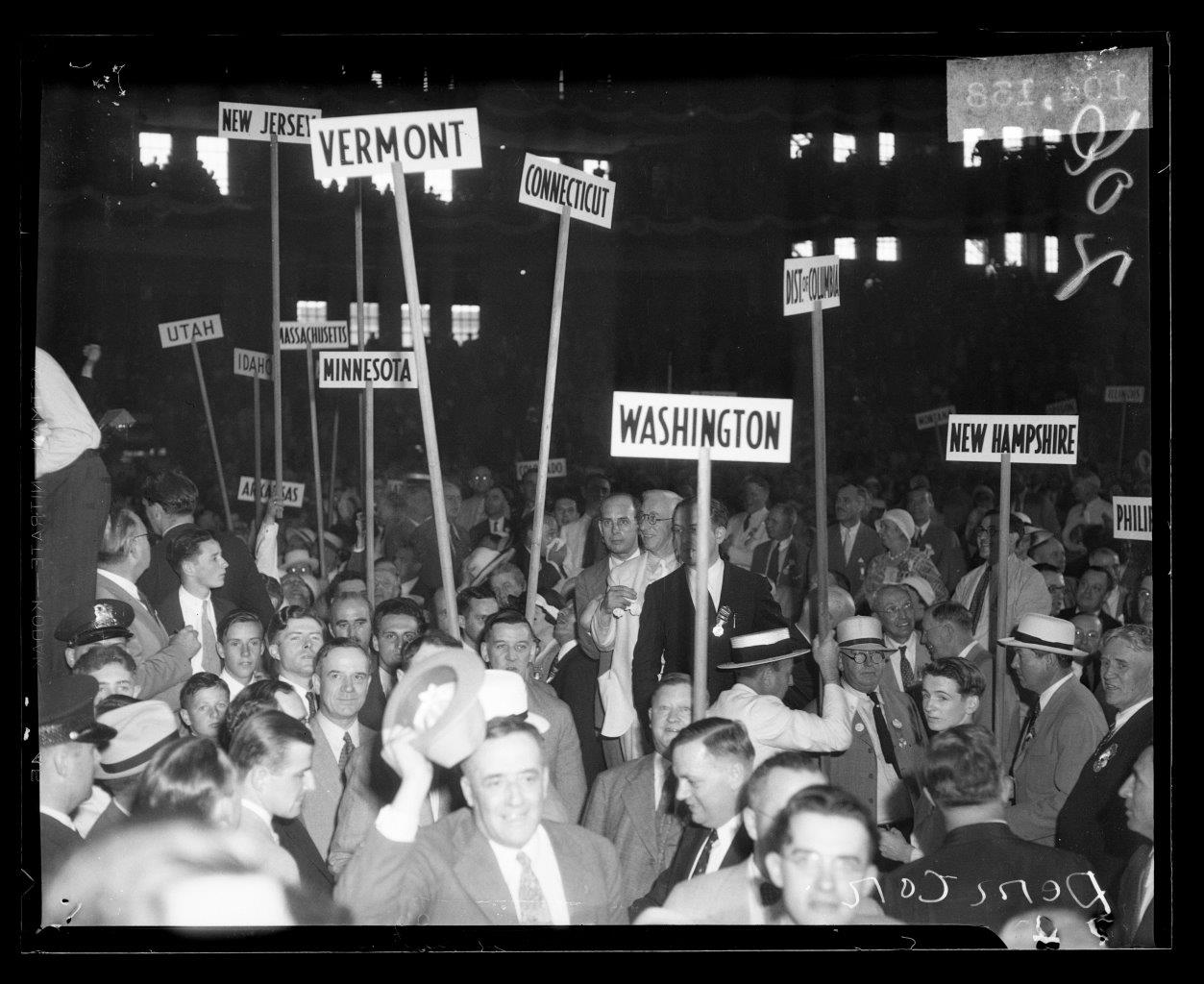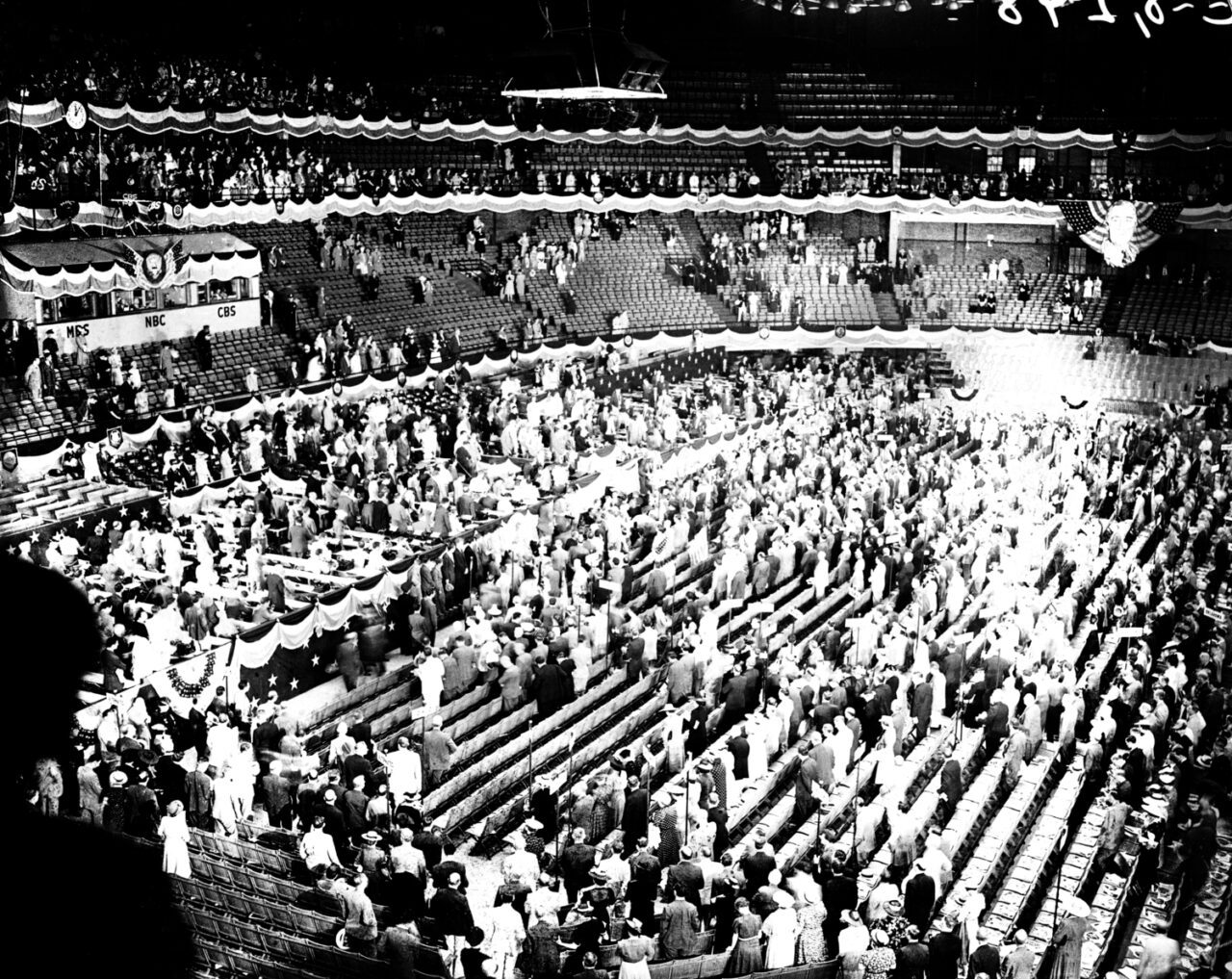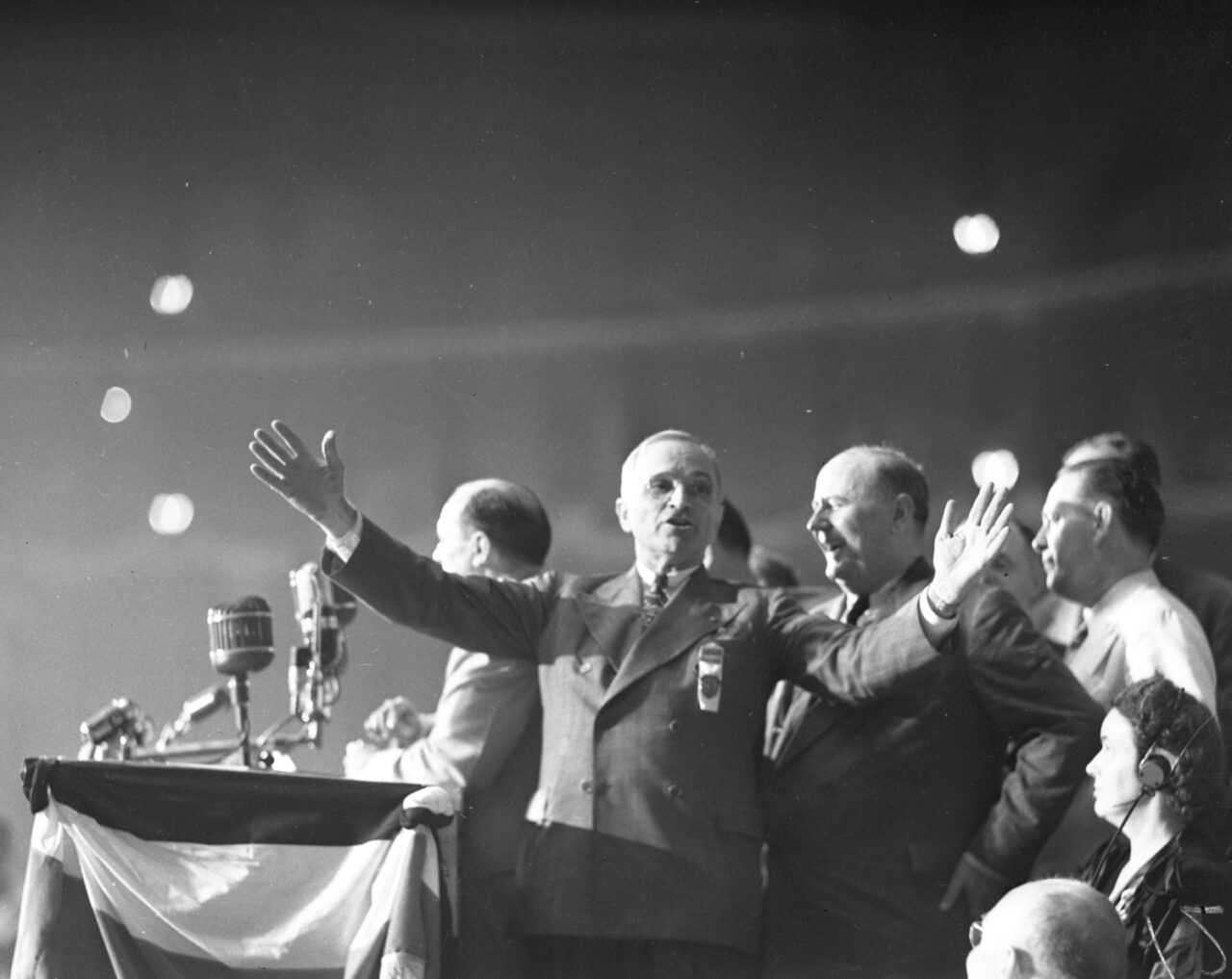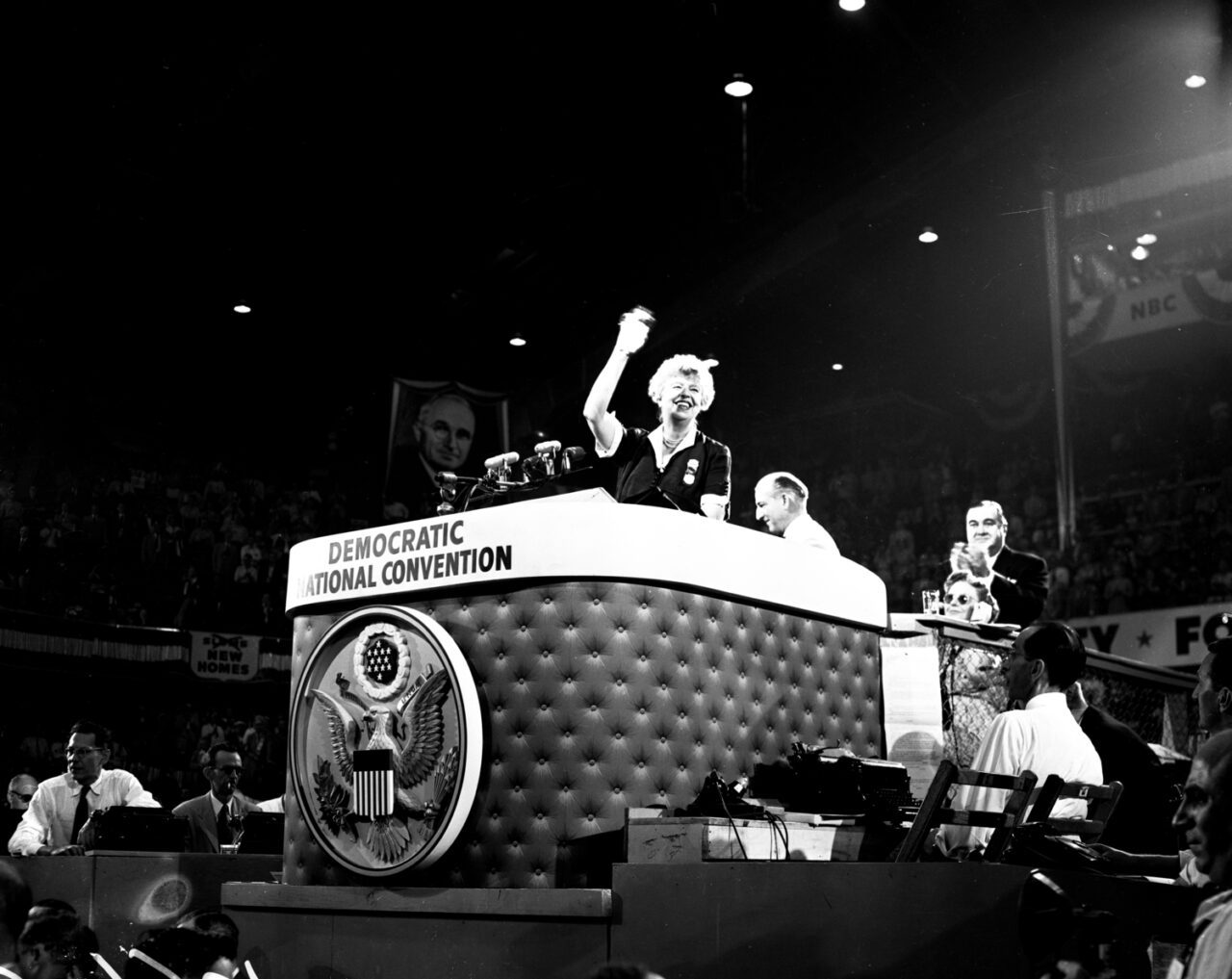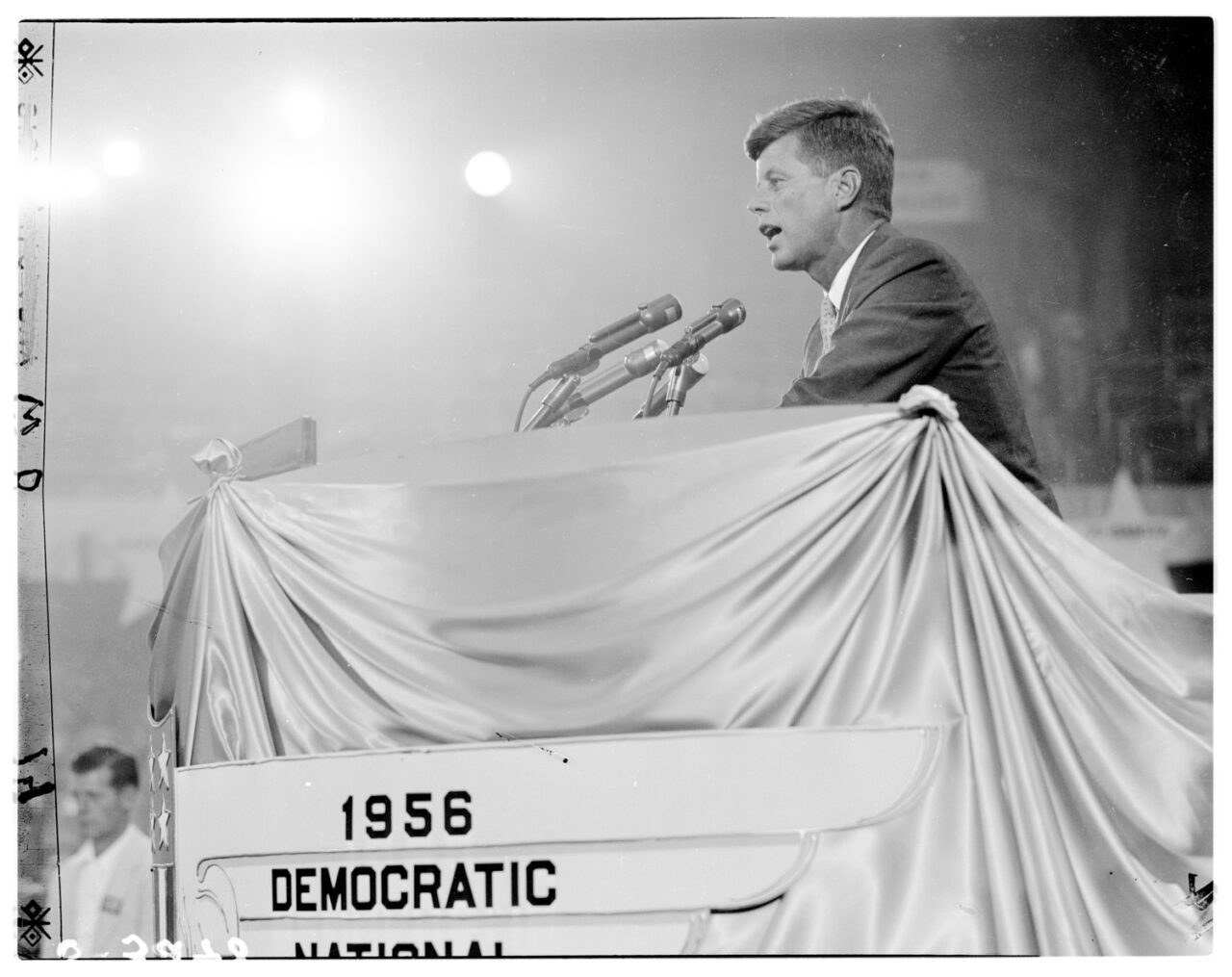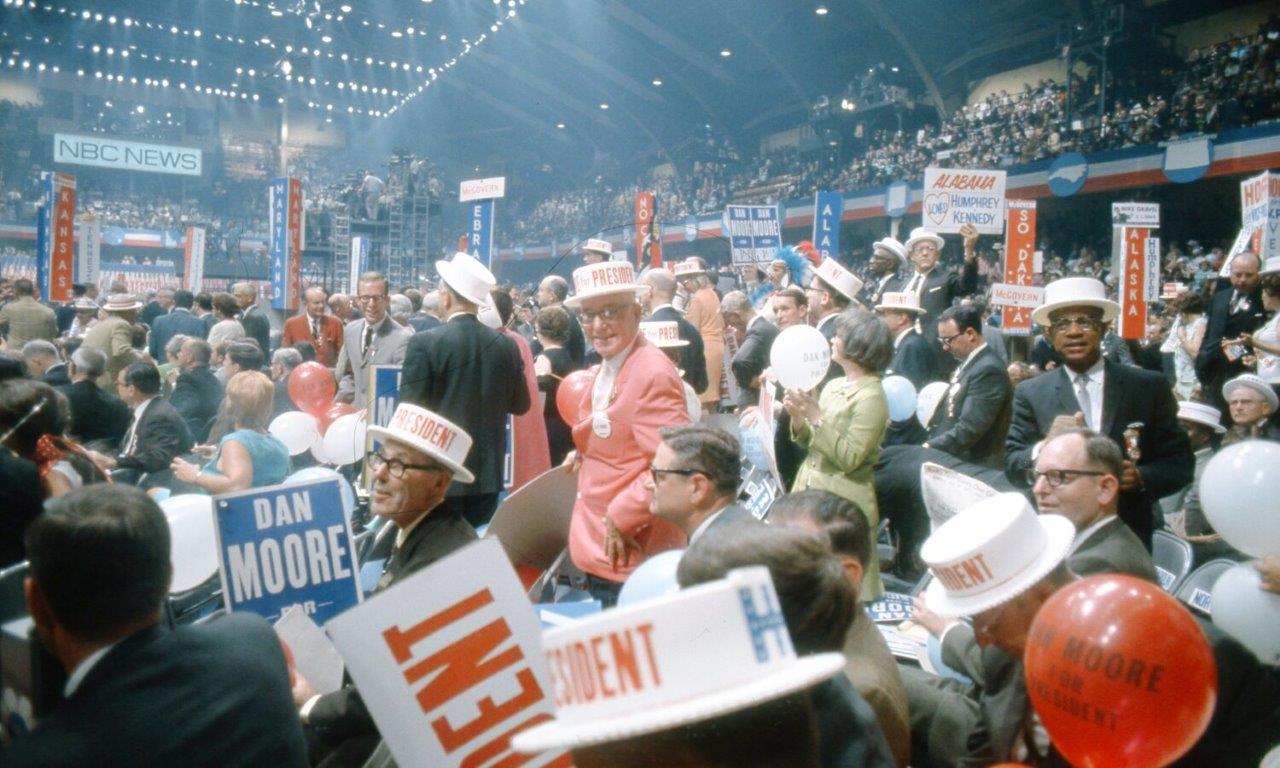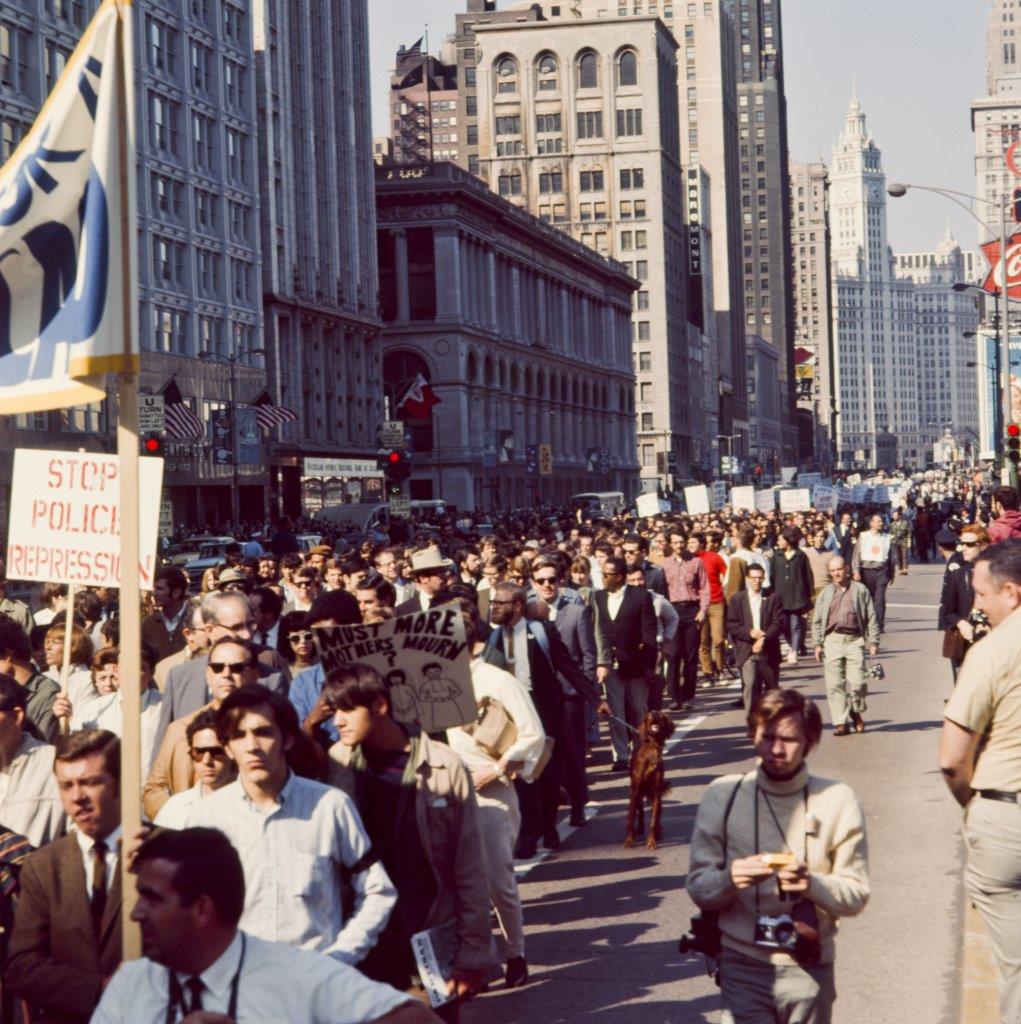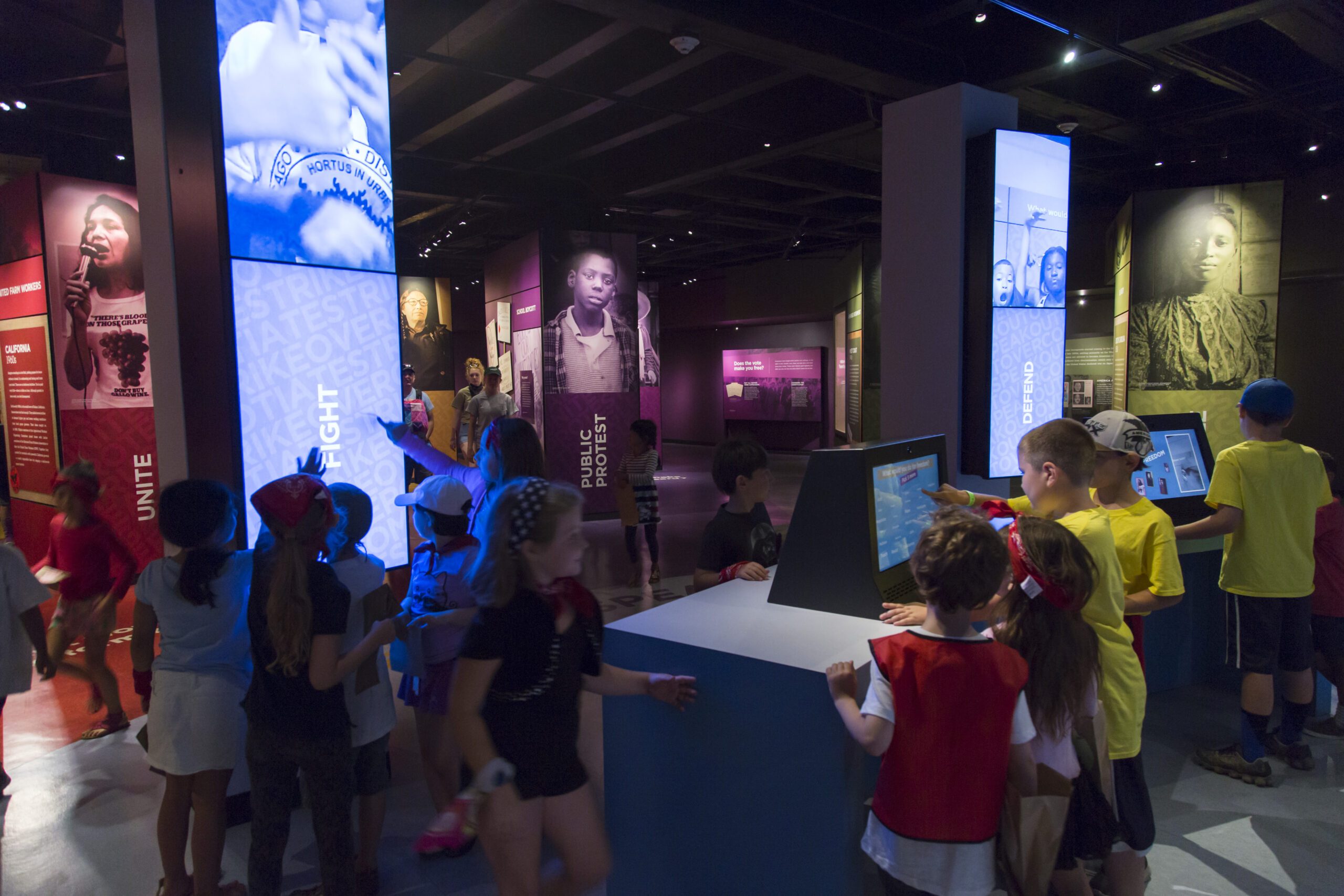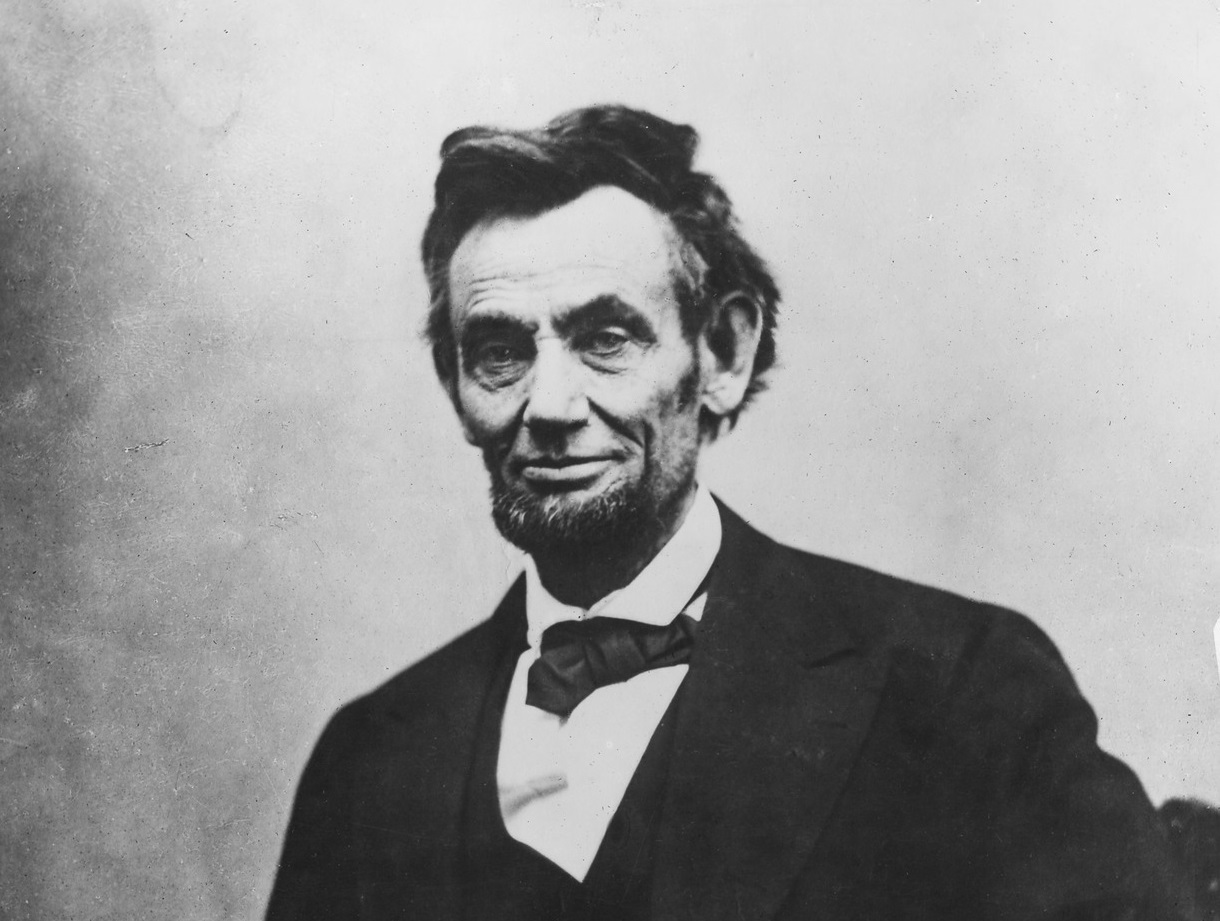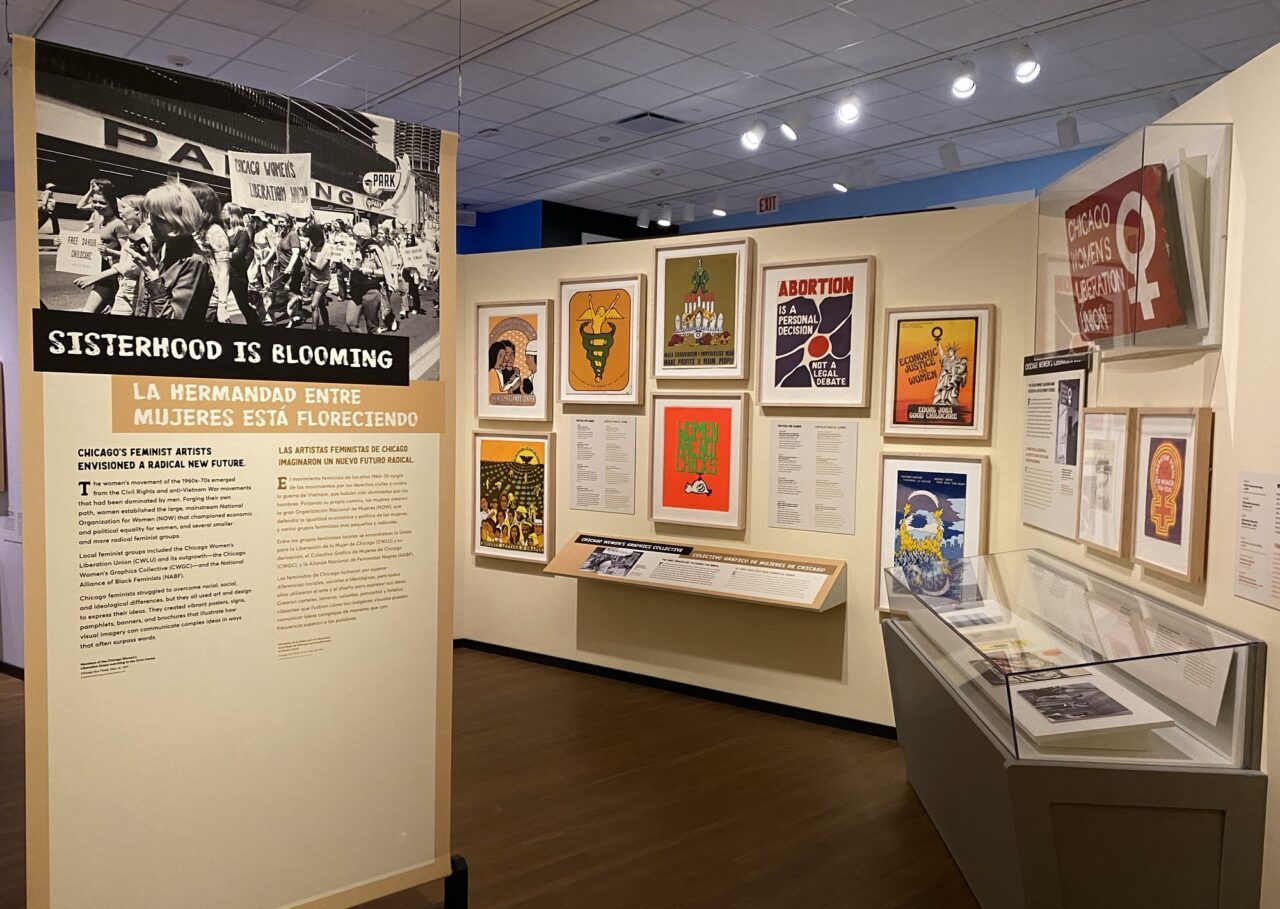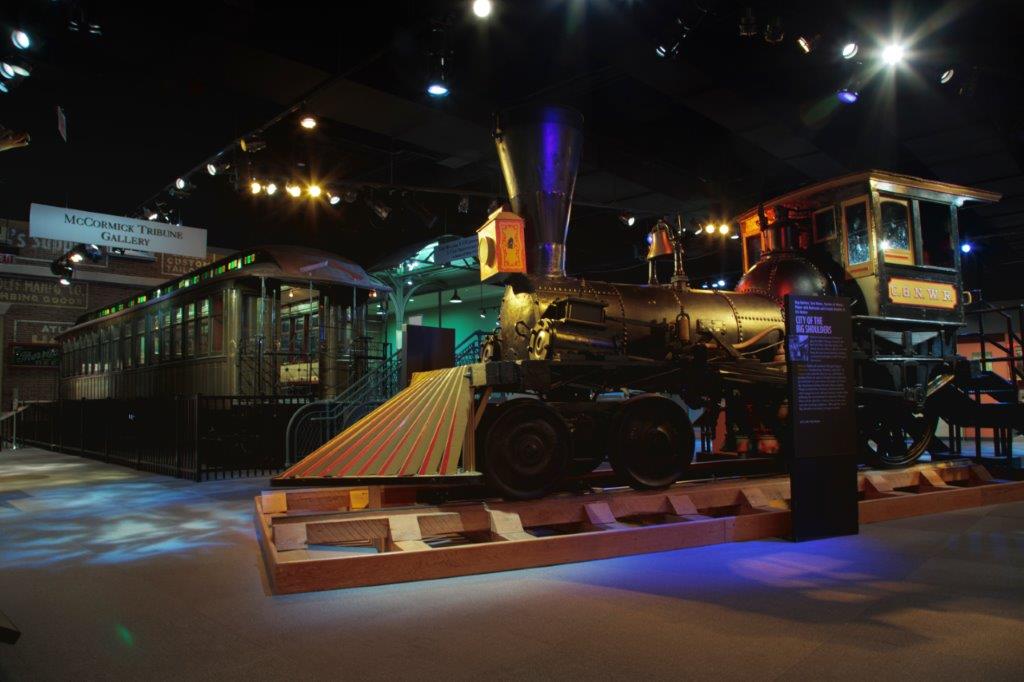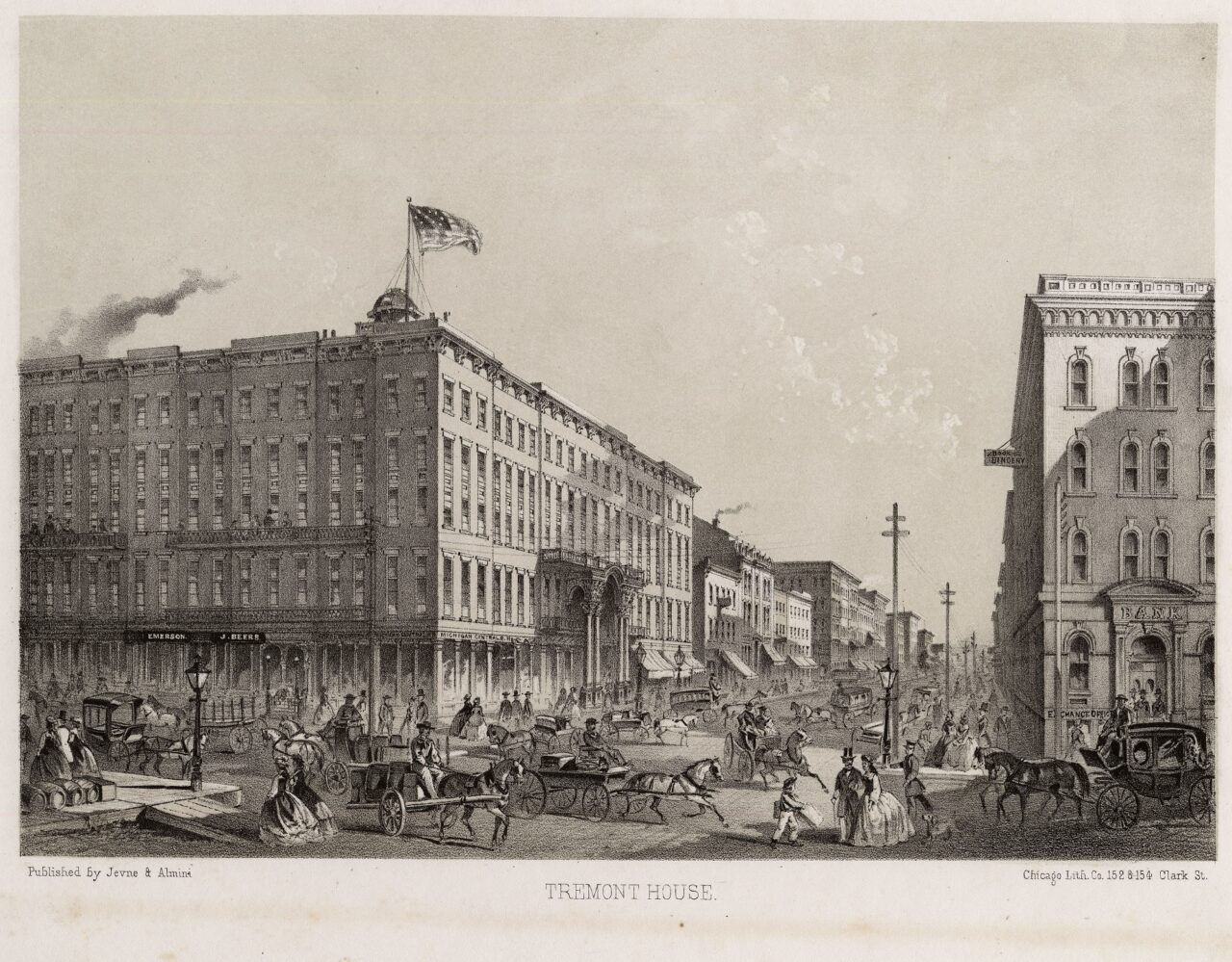Political Conventions in Chicago
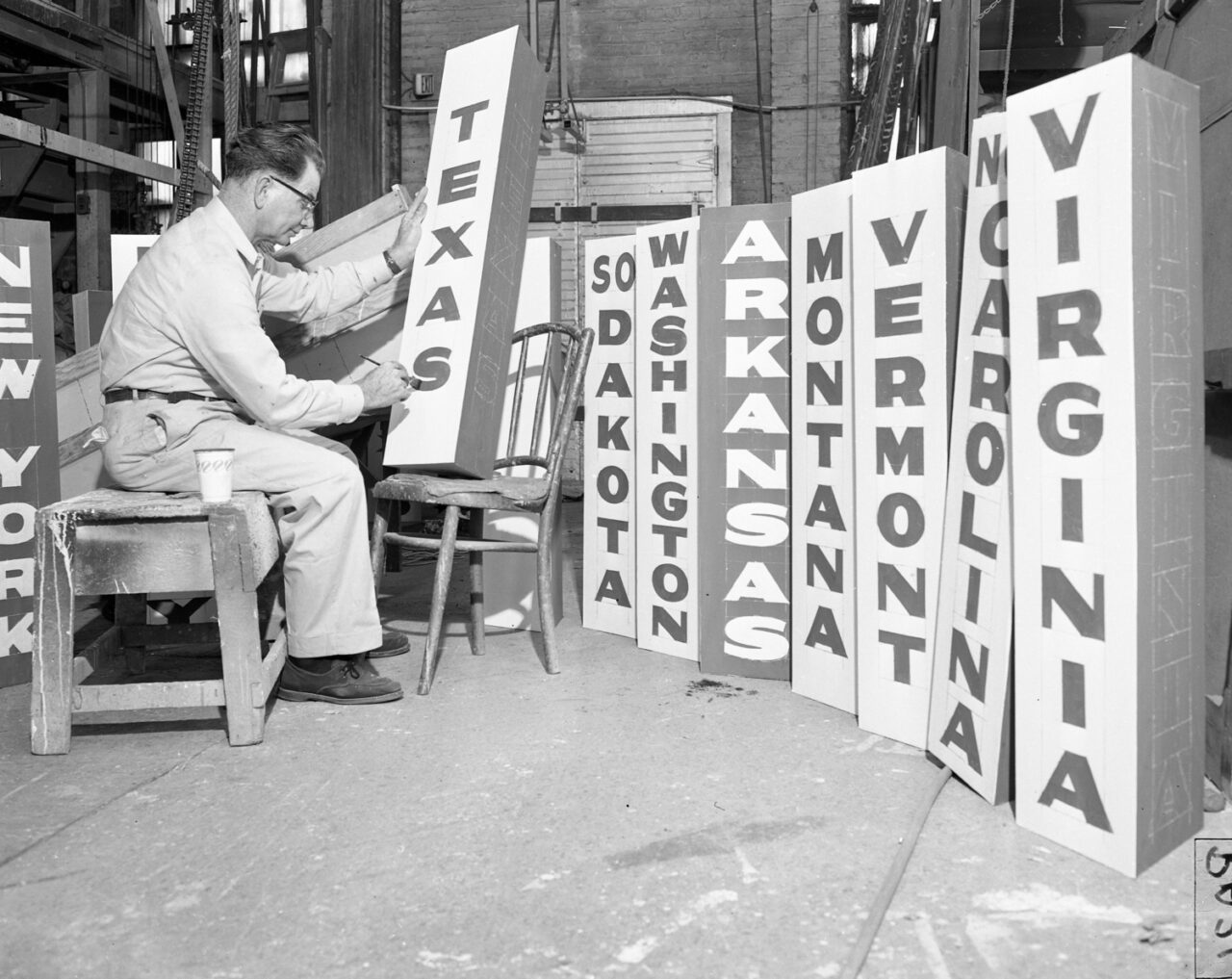
Chicago has been the nation’s most popular political convention city, in part because of its geographic centrality. Between 1860 and 1996, Chicago hosted 14 Republican National Conventions and 11 Democratic (12 in 2024) National Conventions. These conventions are held every four years to select the party’s nominee for U.S. president in the popular election. The party also adopts a statement of party principles and goals known as the party platform.
Third parties have also held similar conventions in Chicago, including the Greenback Party, the Independence Party, the Progressive Party, the Farmer-Labour Party, the American Party of the United States, the Libertarian Party, the Green Party of the United States, and Communist Party USA (and its predecessor parties).
- Explore photographs from past Democratic National Conventions held in Chicago.
- Learn more about these important political moments in Chicago history in the Encyclopedia of Chicago.
- Read more on how the media influenced the perception of past Democratic National Conventions in Chicago.
- Visit our exhibition Designing for Change: Chicago Protest Art of the 1960s‒70s to see antiwar imagery created in response to the 1968 DNC.
Presidential Nominating Conventions Hosted in Chicago
| Party | Year and Nominee |
|---|---|
| Republican Party | 1860 (Abraham Lincoln); 1868 (Ulysses S. Grant); 1880 (James A. Garfield); 1884 (James G. Blaine); 1888 (Benjamin Harrison); 1904 (Theodore Roosevelt); 1908 (William H. Taft); 1912 (William H. Taft); 1916 (Charles E. Hughes); 1920 (Warren G. Harding); 1932 (Herbert Hoover); 1944 (Thomas E. Dewey); 1952 (Dwight D. Eisenhower); 1960 (Richard M. Nixon) |
| Democratic Party | 1864 (George B. McClellan); 1884 (Grover Cleveland); 1892 (Grover Cleveland); 1896 (William Jennings Bryan); 1932 (Franklin D. Roosevelt); 1940 (Franklin D. Roosevelt); 1944 (Franklin D. Roosevelt); 1952 (Adlai Stevenson II); 1956 (Adlai Stevenson II); 1968 (Hubert Humphrey); 1996 (William J. Clinton); 2024 (Kamala D. Harris) |
| Greenback Party | 1880 (James B. Weaver) |
| Independence Party | 1908 (Thomas L. Hisgen) |
| Progressive Party | 1912 (Theodore Roosevelt); 1916 (Theodore Roosevelt – nomination declined) |
| Farmer-Labour Party | 1920 (Parley P. Christensen); 1928 (Frank E. Webb) |
| Communist Party USA | 1924 (William Z. Foster – then the Workers Party of America); 1932 (William Z. Foster) |
| Progressive Party (est. 1948) | 1952 (Vincent Hallinan) |
| American Party of the United States | 1976 (Lester Maddox) |
| Libertarian Party | 1991 (Andre Marrou – nominated for 1992 presidential election) |
| Green Party | 2008 (Cynthia McKinney) |
Walking Tour
SOLD OUT! Convention City: How Presidential Nominations in Chicago Shaped the Nation
From Lincoln’s nomination in the Wigwam to Franklin D. Roosevelt’s at the Chicago Stadium to the chaos that unfolded in 1968, Chicago has been at the center of the nation’s political life. On this walking tour led by CHM director of exhibitions Paul Durica, hear the story of seven significant presidential nominating conventions in Chicago.
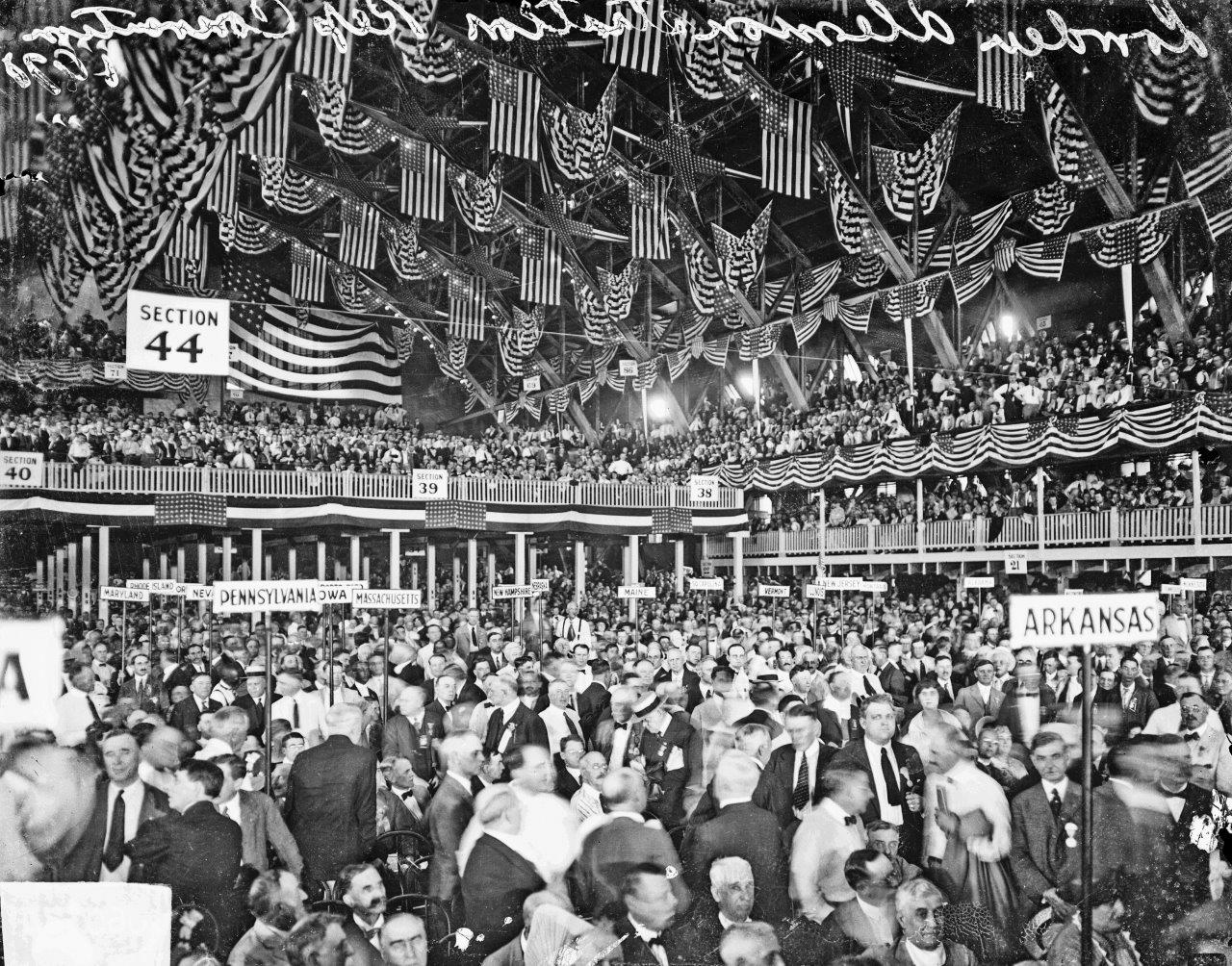
1968 Democratic National Convention
In 1968, Chicago experienced a breakdown in the political process.
At the Democratic National Convention (DNC) in August, delegates came to the city to select their next presidential candidate. Activists gathered to protest United States policies at home and abroad during the convention.
Political delegates fought inside the convention arena. Protestors and police brawled on the city’s streets. Meanwhile, the news media depicted division and violence.
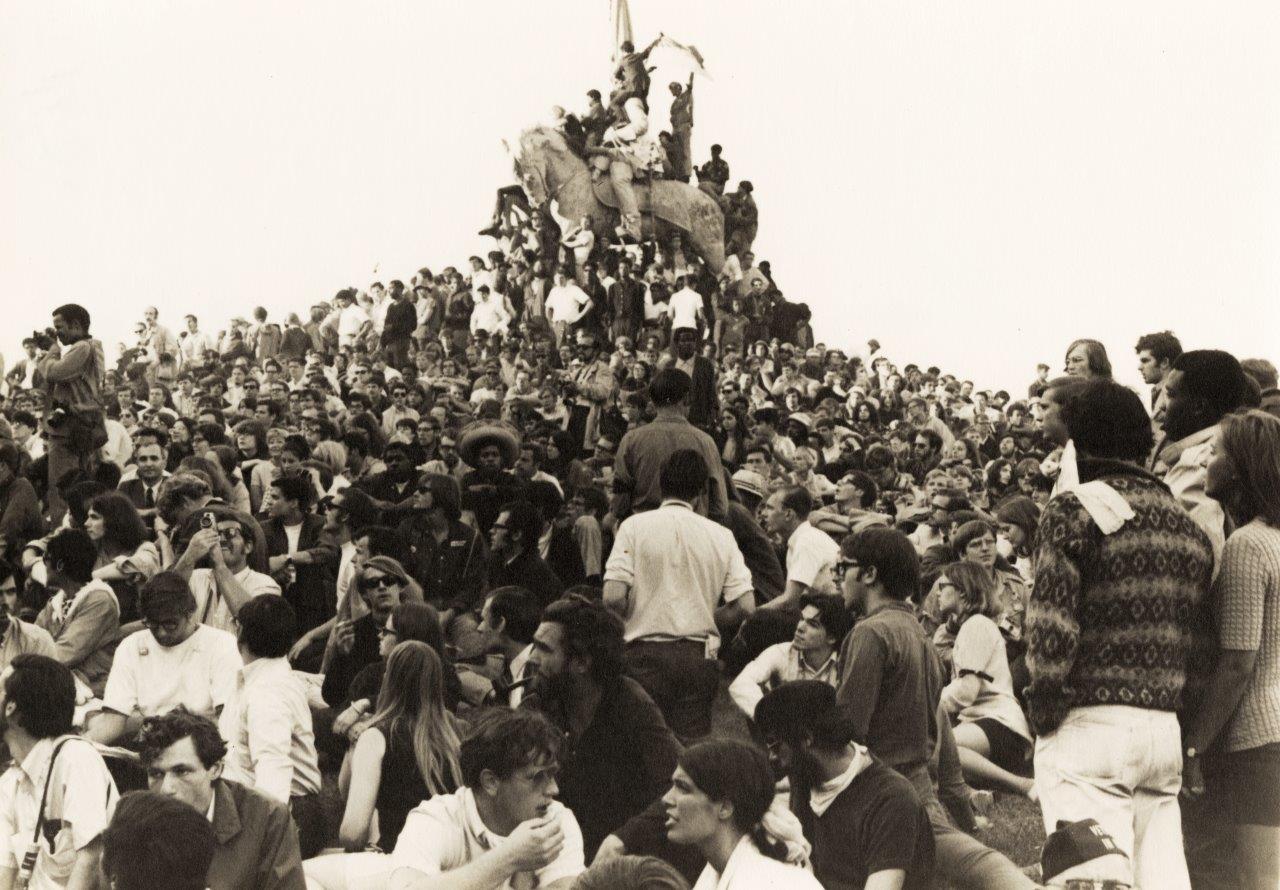
The Chicago 7
September 24, 1969, marked the beginning of one of the most infamous trials in U.S. history for eight (later seven) activists linked to the protests that took place in response to the 1968 Democratic National Convention, held in Chicago at the International Amphitheatre on August 26‒29.
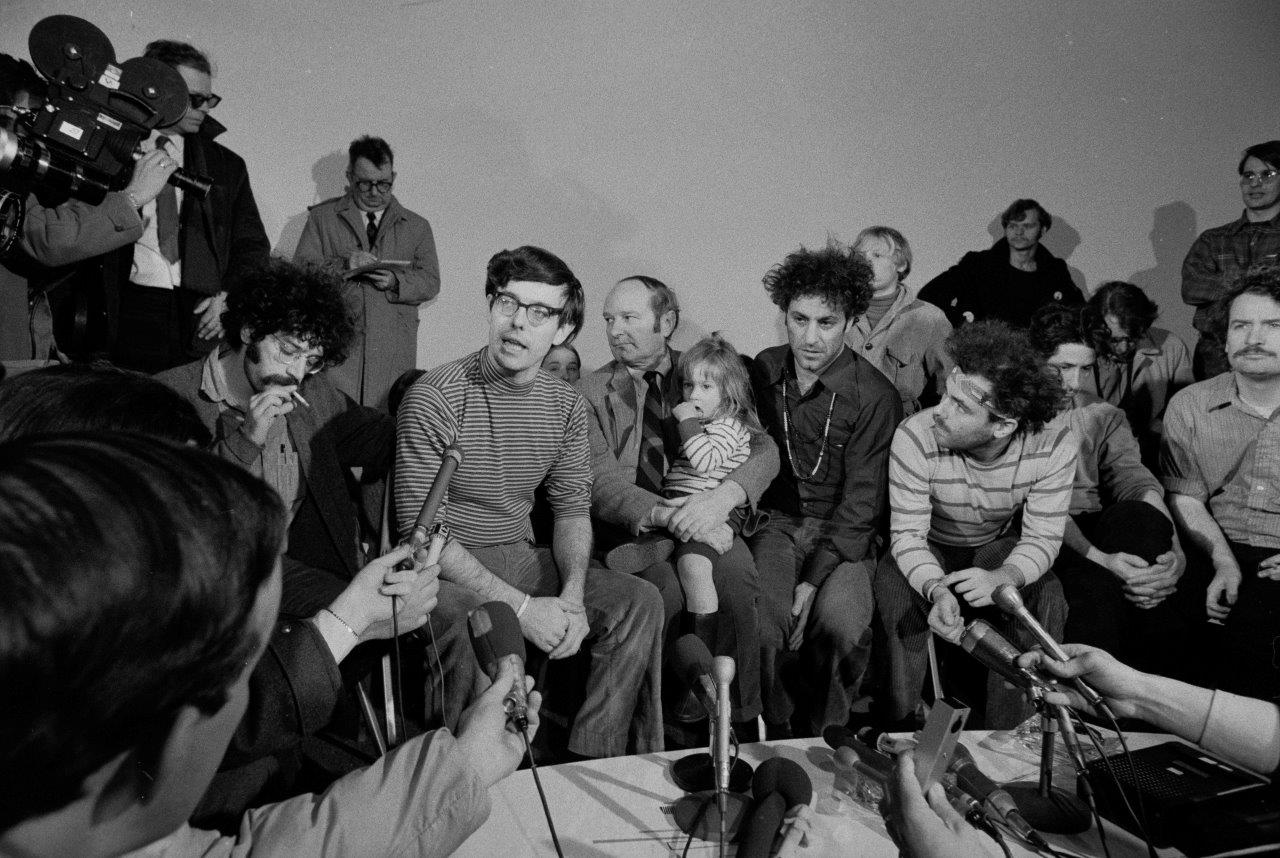
Communist Party USA Conventions in Chicago
The Communist Party of America was officially founded at a convention in Chicago in 1919 after a left-wing branch broke away from the Socialist Party of America. The Communist Party was deeply rooted in the labor, or workers, movement in the early 20th century and was important in forming unions and leading labor strikes, as well as being involved in later civil rights and antiwar movements.
Through the 1920s, the Communist Party had multiple factions and name changes, settling on its current name Communist Party USA in 1929. Membership grew in the 1930s. However, the Taft-Hartley Act of 1947 required unions to purge Communist leaders and political repression in the 1940s and 1950s caused membership to decrease. Nevertheless, CPUSA remains a political party, and it has hosted national conventions in Chicago in 1975, 1987, 2005, 2014, and 2019.
